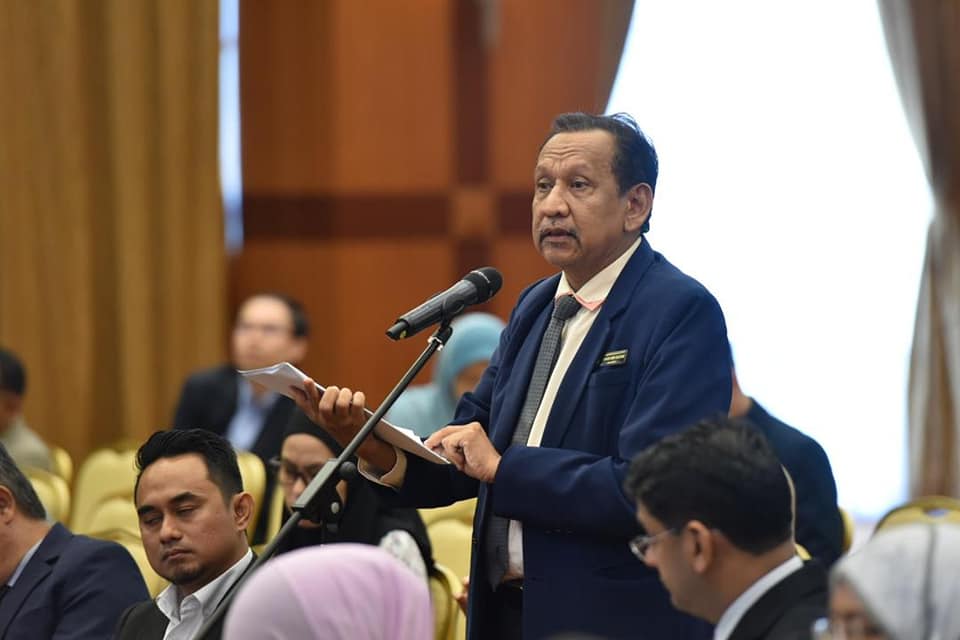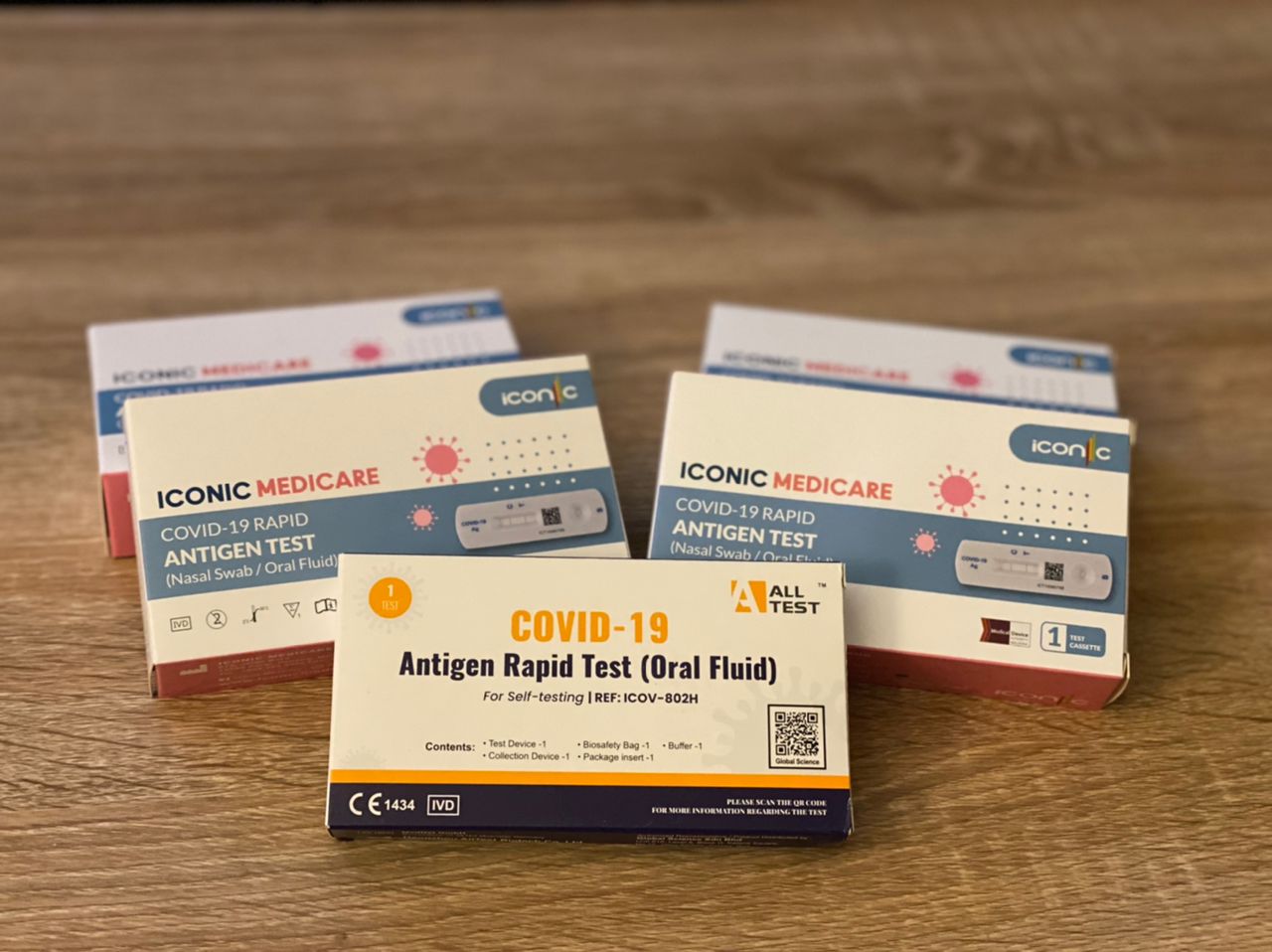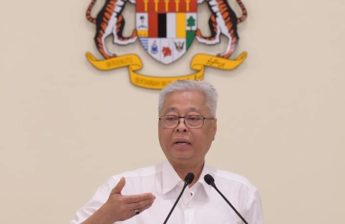KUALA LUMPUR, Feb 22 — At least four pharmacy chains in Malaysia are facing shortages in Covid-19 antigen rapid tests, as coronavirus infections surge to daily highs in the Omicron wave.
BIG Pharmacy said ready stocks and inventory of Covid-19 self-test kits are running low amid panic buying, as demand still exceeds supply, even after Chinese New Year.
“There are many [members of the] public rushing to buy and bulk purchase,” a marketing manager from BIG Pharmacy emailed CodeBlue last Saturday.
BIG Pharmacy, which has more than 80 outlets in Malaysia, however did not specify which of its stores are running particularly low on Covid-19 antigen rapid tests.
AA Pharmacy’s marketing department said demand for Covid-19 self-test kits has more than doubled, amid the recent surge in coronavirus infections.
“Stocks are running low due to inconsistent supply from suppliers and shipment rate is very expensive,” an AA Pharmacy marketing representative told CodeBlue last Friday, adding that customers were also engaging in panic buying or bulk purchasing of Covid-19 tests.
AA Pharmacy has 46 outlets in the Klang Valley and two in Seremban.
A representative from the purchasing department of AM PM Pharmacy, with 40 outlets that are mostly based in Johor, similarly told CodeBlue yesterday that Covid-19 self-test kits are now out of stock.
He also said customers were panic buying or purchasing Covid-19 antigen rapid tests in bulk and that the test shortages were due to supplier problems.
The Domestic Trade and Consumer Affairs Ministry (KPDNHEP) said in a separate statement today that there are sufficient Covid-19 antigen rapid test kits (RTK), noting that there are currently 18 million units in the market.
KPDNHEP also noted that it has only received three complaints this year as of yesterday on Covid-19 self-test kit shortages. RTK retail prices range from RM4.90 to RM19.90 per kit. Eighty per cent of RTK products are sold for below RM10.
The Ministry of Health (MOH) reported a 24-hour record high 28,825 new Covid-19 cases last Saturday, exceeding the previous record of 27,831 infections on Wednesday. Yesterday, 25,099 new cases were reported.
Malaysia’s national test positive rate also climbed to 9.8 per cent on February 19, higher than the World Health Organization’s (WHO) 5 per cent bench mark. As of February 20, at least 50 per cent of intensive care unit (ICU) beds were occupied by critically ill Covid-19 patients in Johor (70 per cent), Kuala Lumpur (65 per cent), and Melaka (50 per cent).
Covid-19 antigen rapid tests give results within minutes. MOH has advised the general public to conduct regular self-testing, especially prior to participating in activities or events involving different households. Antigen rapid test kits are also advised for close contacts if they have coronavirus symptoms, while positive cases do not need to confirm Covid-19 diagnosis with a follow-up PCR test.
Separately, CodeBlue visited three to four drug stores in Cheras here on February 13 – AA, Caring Pharmacy, and Farmasi Sri Mulia – and found a limited choice of Covid-19 self-test kits. Some outlets were only left with saliva-based tests. Other Covid-19 antigen rapid tests use nasal or oral swabs.
Malaysian Pharmacist Society (MPS) Penang chairwoman Gina Koay Wan Lee said that there is a shortage of Covid-19 test kits from certain companies due to gatherings during Chinese New Year. Many employers have also purchased tests for staff to test for the coronavirus frequently.
As Covid-19 cases continued climbing daily, and with people becoming close or casual contacts of positive Covid-19 cases, testing demand increased “exponentially” after Chinese New Year. Many customers went to pharmacies to buy more than six units of Covid-19 self-test kits, said Koay.
‘’Test kits’ price generally increased. Prices now range from RM6.90 to RM15,” Koay told CodeBlue.
As many Covid-19 test kits are imported from China and other countries, she also attributed the shortage of tests to slow delivery from overseas and increased charges for logistics.
A community pharmacist working at Alpro Pharmacy’s headquarters, who only wanted to be known as Wen Jun, told CodeBlue that most of the more than 100 Covid-19 antigen rapid tests approved by the Medical Device Authority (MDA) are imported, particularly from China.
“Since the pandemic, supply chain is a challenge when port traffic jams, shipping container shortages and manpower insufficiencies continue. The Lunar New Year festive holiday in China also caused some delay in shipment,” Wen Jun said.
“Hence, the public speculated the raise of selling price for RTK self-test kits. Majority suppliers at this moment still keep their pricing as before. We advise the public to not over-stock as not only it may cause wastage, it contributes to further stock instability.”
The Alpro Pharmacy pharmacist, however, said that face masks, oximeters, and thermometers are still in stable supply. Alpro Pharmacy has more than 135 outlets in the country.
“Consumers should be cautious on the authenticity of all health-related products. We received feedback and concerns from the public about sub-standard test kits and confusing results. Please make sure to only use MDA-approved self test kits and consult a pharmacist or health care professional on how to use the device correctly,” said Wen Jun.
“A negative outcome from a RTK self-test does not reflect that we are 100 per cent safe. Virus infection has an incubation period where a person can remain healthy and without symptoms.
“In the earlier phase, the antigen produced may not be sufficient in quantity to be caught by the self test kit too. Hence, if you have Covid-related symptoms and are especially contacted by someone tested positive, we will suggest that you attend for a PCR test.”

MPS president Amrahi Buang said the apparent shortages in Covid-19 antigen rapid tests were due to delay in shipping during Chinese New Year and Federal Territory celebrations, especially to Sabah and Sarawak.
He reassured the public that local manufacturers have convened manufacturing and approved distributors also have brought in stocks from overseas.
“We hope there is no panic buying of these items and upsetting the market. Government is expected to do more surveillance and monitoring activities,” Amrahi told CodeBlue.
He advised people to buy Covid-19 self-test kits from community pharmacies, as these do not sell fake products or low-quality products, or to buy from MPS-verified stores if consumers plan to purchase tests online.
A pharmacist in Penang told CodeBlue that she believes that Covid-19 test supplies will be replenished very soon, since it is a hot-selling item now.
“The stock level is still fine I think. Even if you can’t buy it at one site, you still can get it at another place in the market at a reasonable price.” the pharmacist said on condition of anonymity.
“People are buying more than two now, like three or five etc is common. Public might test more often now if suspected close contact, casual contact or they’re presented with any symptoms, like sore throat, fever or cough, thus leading to a surge in demand.
“The use of a test kit could be common nowadays, yet reinforcement of proper technique and time to read the results after sample loading is important to avoid any false negative or positive result. The show of two lines too fast or too slow is indeed unreliable.”
Two lines on an antigen rapid test indicates a positive result.
Update: This story was updated with KPDNHEP’s statement in paragraphs 10 to 11.








